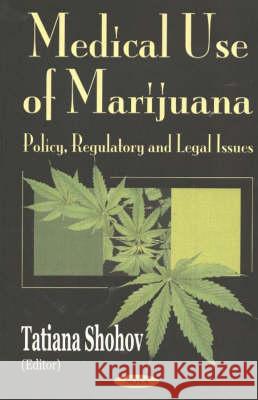Medicinal Use of Marijuana: Policy, Regulatory & Legal Issues » książka
Medicinal Use of Marijuana: Policy, Regulatory & Legal Issues
ISBN-13: 9781590337547 / Angielski / Twarda / 2003 / 138 str.
In recent years, there has been much debate over whether marijuana, an illegal drug, can provide patients with a level of therapeutic relief comparable to existing pharmaceutical treatments. While this idea is hardly new, it is advanced by some proponents as deserving more scientific inquiry. Advocates for the medical use of marijuana contend that there is already sufficient scientific evidence to justify rescheduling marijuana under the Controlled Substances Act, a change that would give it the necessary legal recognition to be used for medicinal purposes. This has already occurred in the case of dronabinol, the synthetic form of the main psychoactive ingredient in marijuana, which has been available as an oral prescription drug since 1986 under its brand name Marinol. To address these viewpoints, several comprehensive studies were done in the late 1990s to evaluate medicinal claims made for smoked marijuana and determine whether they are supported by convincing scientific evidence. The medical marijuana debate gained attention at the state level in 1996, when voters in California and Arizona approved ballot initiatives allowing doctors to prescribe the drug for therapeutic uses. Washington, and reaffirmed in Arizona. Voters in Maine adopted a medical marijuana initiative in 1999. In 2000, medical marijuana was approved by voters in Colorado, reconfirmed in Nevada, and passed by the legislature in Hawaii. Federal health officials assert that these initiatives are part of a strategy to soften the nation's drug laws, and that public policy would be better served if science, rather than the ballot box, were used to judge the drug's utility. This book assesses the current issues and examines the controversies regarding the marijuana legalization issue.











